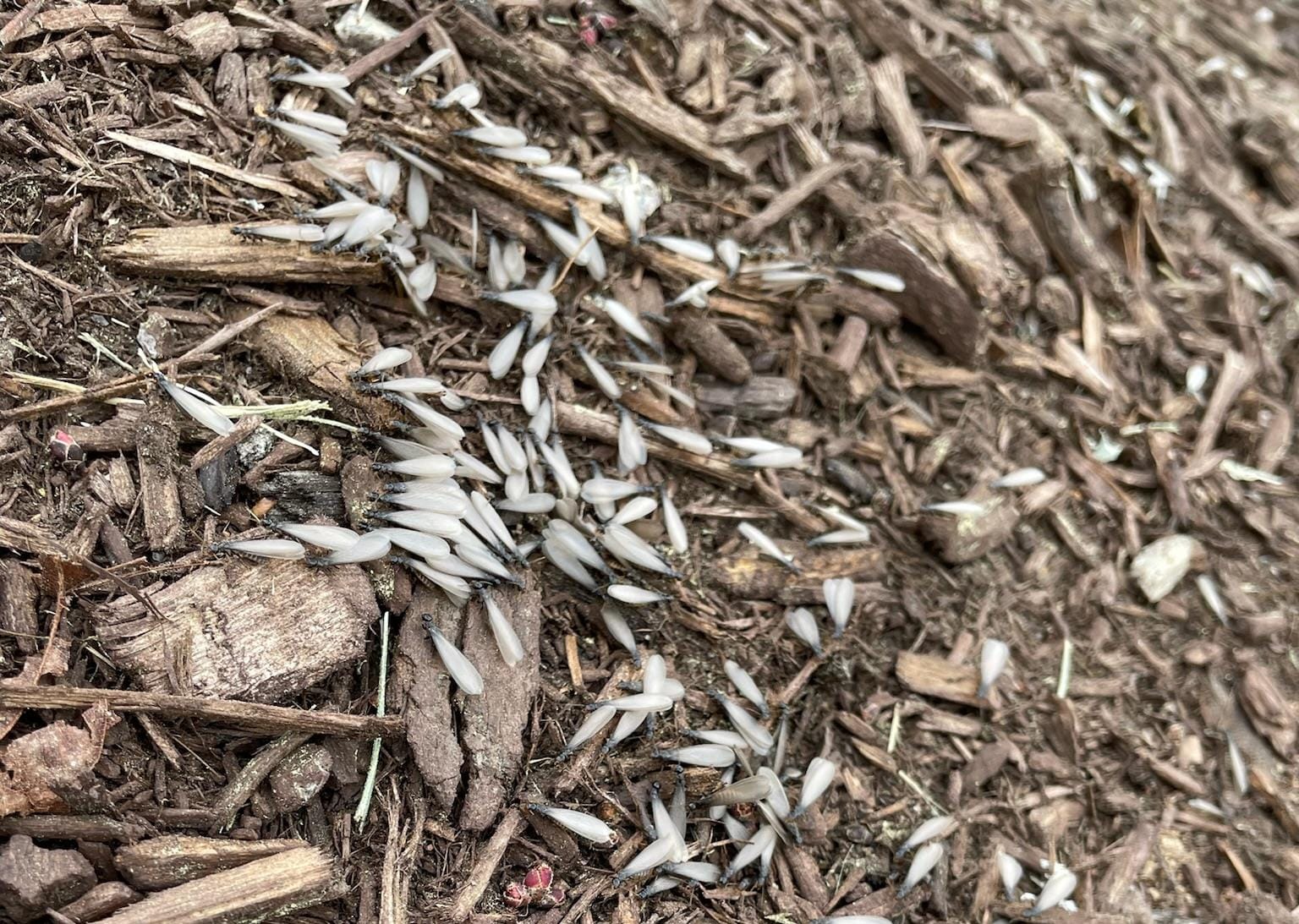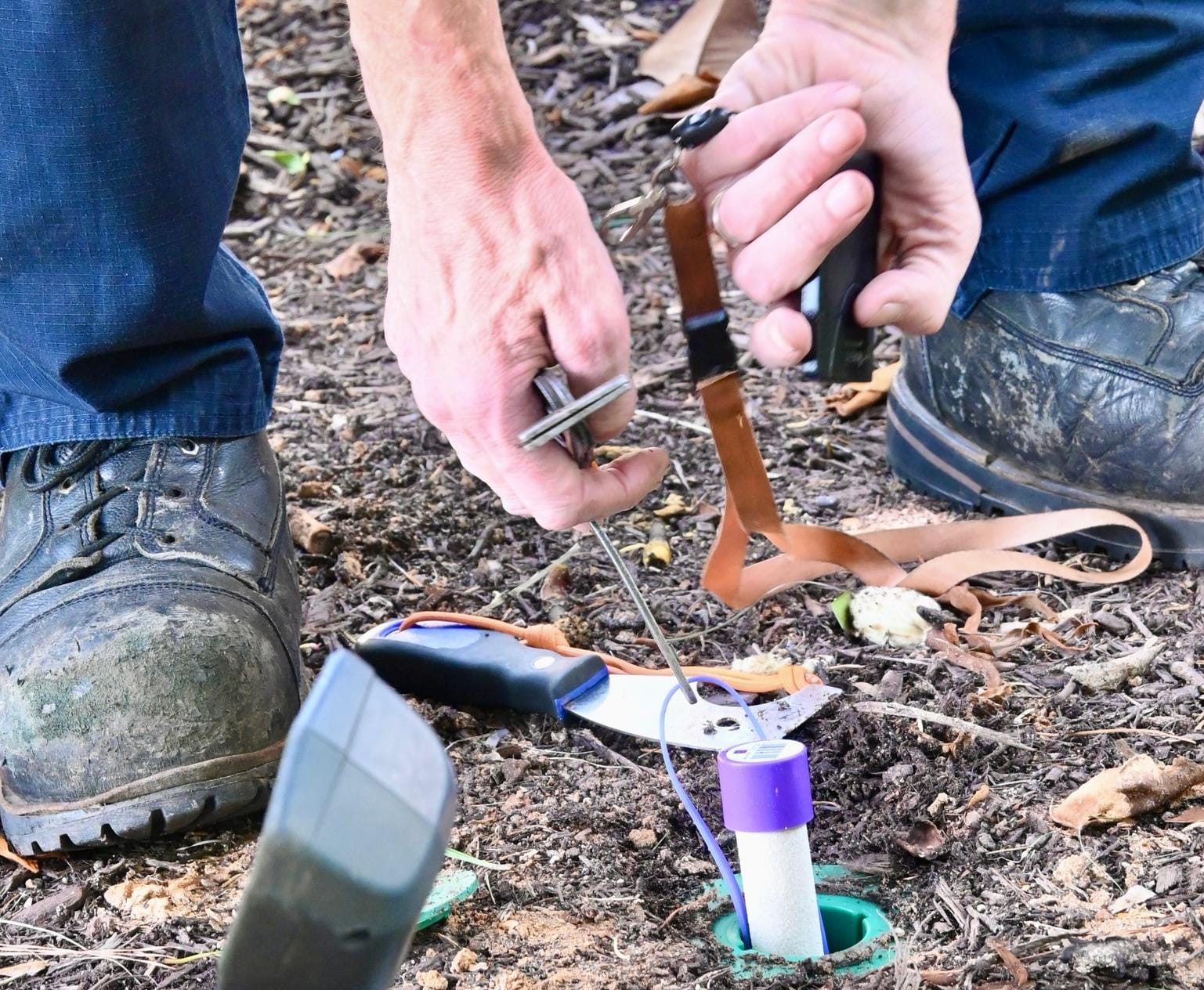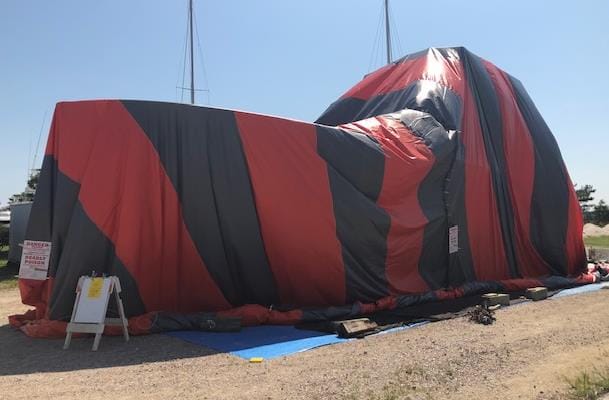Spot the Swarm: Everything You Need to Know About Termite Swarmers This June

Termite Swarmers – Durham, NC
June marks peak termite swarmer season—and your home could be at risk. As warmer temperatures arrive, termite colonies become more active, sending swarms of winged reproductives in search of new territory. At Clegg’s Pest Control, we’re here to help you spot the signs early, understand the risks, and protect your home with professional, affordable termite services—including FREE inspections and trusted treatment options.
What Are Termite Swarmers?
Termite swarmers—also known as alates—are the winged reproductive members of a termite colony. Their job is to leave the nest, find a mate, and establish a new colony. They’re most often seen in late spring and early summer, especially after rainstorms. Although they don’t eat wood themselves, their presence is often the first visible warning of an active termite infestation.
How to Identify Termite Swarmers vs. Flying Ants
Not all winged insects are termites. One of the most common homeowner questions is:
“How do I know whether I have a termite problem or an ant problem?”
| Feature | Termite Swarmers | Flying Ants |
|---|---|---|
| Waist | Thick, straight (no pinch) | Pinched or narrow waist |
| Wings | Two pairs, equal length | Two pairs, front wings larger than rear |
| Antennae | Straight, beaded | Bent or “elbowed” |
| Color | Typically black or dark brown | Typically reddish, brown, or black |
| Behavior | Shed wings quickly; found near windows | Wings more durable; slower to shed |
If you see flying insects indoors near light sources, check window sills for discarded wings or mud tubes along your foundation. These are strong signs you may have a termite issue.
Common Termite Species in North Carolina
North Carolina’s warm, humid climate is ideal for termites. The most prevalent species include:
1. Eastern Subterranean Termites (Reticulitermes flavipes)
- Appearance: Creamy white workers (~1/8 inch), dark brown to black swarmers with
equal-length wings. - Habitat: Soil near foundations, mulch beds, crawl spaces.
- Behavior: Build mud tubes to access wood structures; responsible for the majority of
termite damage in the state. - Swarming Season: Spring, typically after rainfall.
2. Formosan Subterranean Termites (Coptotermes formosanus)
- Appearance: Yellow-brown swarmers (~½ inch), soldiers with large orange heads and
curved mandibles. - Habitat: Moist wood in attics, wall voids, boats, and trailers.
- Behavior: Highly aggressive and destructive; colonies can number in the millions and
cause significant damage within months. - Swarming Season: Late spring to early summer.
3. Drywood Termites (Incisitermes spp.)
- Appearance: Larger, darker swarmers; produce wood-colored pellet droppings (frass).
- Habitat: Dry wood in attics, furniture, and trim; do not require soil contact.
- Behavior: Often introduced through infested furniture or wood; infestations can go
unnoticed until significant damage occurs. - Swarming Season: Late summer to early fall.
Why Swarmers Signal a Bigger Problem
Swarmers themselves don’t bite or chew through wood—but they signal the presence of a mature colony nearby. And that colony is likely feasting on the wooden structures of your home.
Termites are silent destroyers, eating from the inside out. By the time you notice structural changes like:
- Blistered or buckling wood
- Mud tubes on your foundation
- Peeling paint
- Hollow-sounding wood
…the damage is often extensive. That’s why early detection is critical.

Sentricon® installation and maintenance – Raleigh, NC
Clegg’s Termite Control Services
At Clegg’s, we offer two top-tier options to control termites and prevent future infestations:
1. Liquid Termiticide Treatments
- Premise®: A non-repellant solution that spreads underground and controls termites by
contact. Its lateral soil movement helps ensure complete coverage. - Termidor®: Uses the Transfer Effect, where infected termites carry the treatment back
to the colony, wiping it out from within.
2. Sentricon® Baiting System with Always Active™ Technology
This eco-friendly solution attracts termites to bait stations around your home. The bait eliminates the colony gradually—and is proven to be highly effective.
Not sure which solution is right for you? Don’t worry. Our professionally trained inspectors will walk you through all your options after your FREE inspection.
Fumigation Services for Termite Infestations
For particularly severe or above ground infestations—such as those caused by drywood termites— Clegg’s offers professional structural fumigation services. As one of the few companies licensed in North Carolina to provide fumigation, we can safely and effectively eliminate termites that have penetrated deeply into wood, furniture, or hidden areas. We also offer commodity and chamber fumigation options when appropriate. If your termite problem requires more than traditional treatments, our expert fumigation team is here to help.

Fumigation of Boat with Drywood Termites – Morehead City, NC
Termite Life Cycle: Why Swarmers Matter
Termites begin life as eggs laid by the king and queen. Over time, nymphs develop into:
- Workers (responsible for eating and damage)
- Soldiers (defend the colony)
- Reproductives (swarmers)
Once swarmers leave the colony and shed their wings, they start new colonies as kings and queens. Most are eaten by predators—but the few that survive are all it takes to start a brand-new infestation.
Prevention Tips: Keep Termites Away
Want to reduce your risk of termites? Start with these smart prevention strategies:
- Keep brush, mulch, and ivy away from your home’s foundation.
- Fix leaky pipes, gutters, and AC condensation quickly.
- Store firewood off the ground and away from your house.
- Schedule routine inspections to catch early signs.
Combo Protection = Big Savings
Want complete peace of mind? Ask about our Combo Deal, which bundles our quarterly pest control service with the Sentricon Termite Baiting System for added value and 24/7 protection.
Act Fast: Get Your FREE Inspection
Don’t wait until the damage is done. Whether you’ve seen swarmers, mud tubes, or suspicious wood damage, now is the perfect time to call in the pros.
Call Clegg’s Pest Control or use our online form to schedule your FREE general termite
inspection today.
